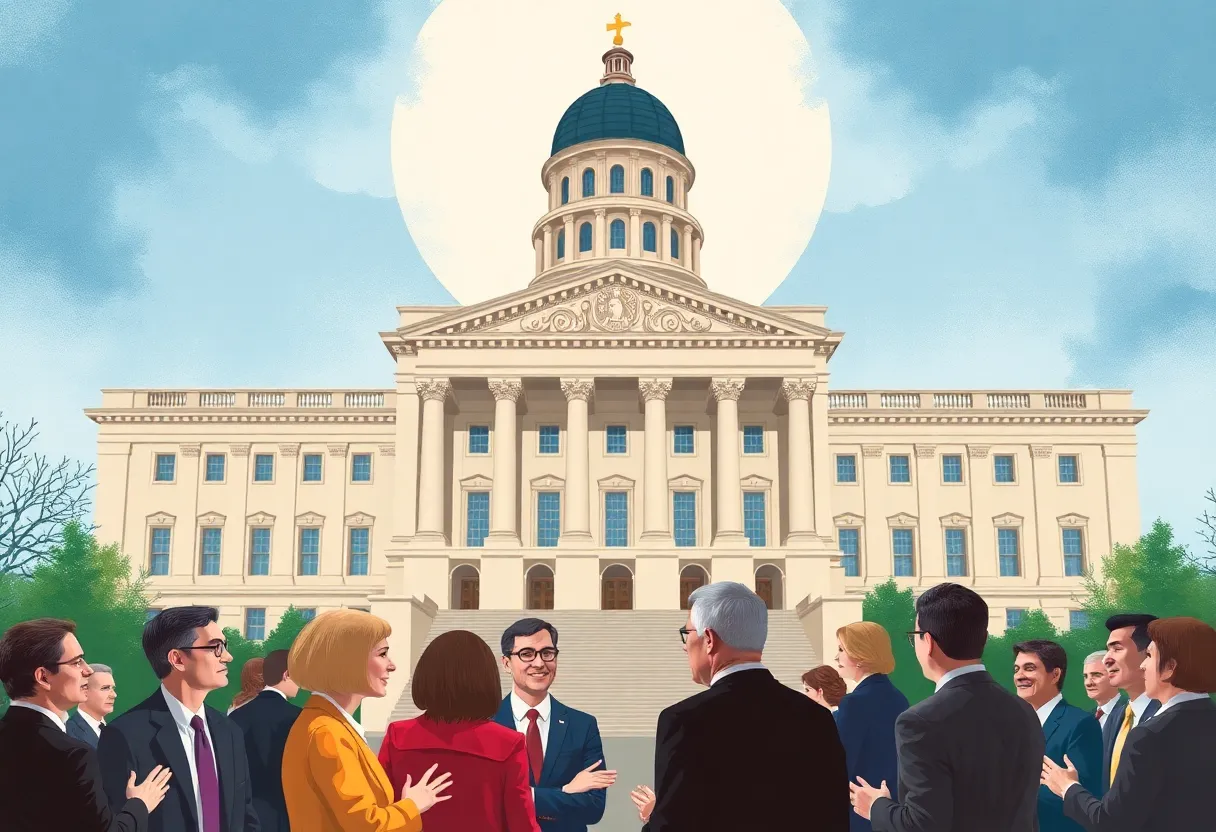News Summary
The West Virginia Senate Government Organization Committee has approved three significant bills aimed at restructuring state departments under Governor Patrick Morrisey. These include transforming the Department of Economic Development, merging the Department of Arts, Culture, and History with Tourism, and exempting new hires from civil service rules. While proponents advocate for modernization and efficiency, critics express concerns over potential job security issues. As the measures proceed to the full Senate, the implications for state employees and the economy remain to be seen.
West Virginia Senate Committee Takes Steps to Reshape State Government
In a buzz of activity, the West Virginia Senate Government Organization Committee met on Thursday morning and made quick work of approving not just one, but three bills aimed at reshaping the state’s bureaucracy under the guidance of Governor Patrick Morrisey. The time was ripe for some significant changes, and these measures have advanced to the full Senate with a strong recommendation for passage.
Breaking It Down: What Each Bill Proposes
First up is House Bill 2008 (HB 2008). This legislation proposes to transform the Department of Economic Development into the Division of Economic Development. This new division will operate within the West Virginia Commerce Department, setting the stage for a streamlined and more efficient approach to economic growth in the state.
Next on the agenda is House Bill 2009 (HB 2009). If this bill passes, it will bring an end to the Department of Arts, Culture, and History as we know it, with plans to merge its sections into the Department of Tourism. Advocates for this bill, including Senator Brian Helton, have expressed support for the innovative direction under the leadership of West Virginia Tourism Secretary Chelsea Ruby. The goal? To create a more effective and cost-saving operation in the tourism sector!
Then we have House Bill 2013 (HB 2013), which proposes a notable shift in the hiring practices of various departments. This bill aims to exempt all new hires at the Bureau of Senior Services, Department of Administration, Department of Environmental Protection, Department of Revenue, and Department of Veterans Assistance from the civil service system, starting July 1. Such a move could pave the way for a fresher and more dynamic workforce, but it does raise some eyebrows about job security.
Concerns and Considerations
While many see these bills as an opportunity for modernization, not everyone is on board. During discussions in the House, some delegates voiced concerns, particularly around the civil service exemption for new hires. There was apprehension that this could lead to job insecurity akin to measures seen on a federal scale. The fear is that these changes might allow for mass firings at the governor’s discretion, leaving employees feeling uncertain about their future.
This isn’t the first time we’ve seen adjustments to the state’s departments. Over the years, the Department of Economic Development, Department of Tourism, and Department of Arts, Culture, and History have already experienced significant shifts. Just a couple of years ago, legislation was passed that altered the structure of these departments, including separating the West Virginia Development Office and Tourism Office from the Department of Commerce in 2021. In fact, the Department of Arts, Culture, and History was reclassified as a Cabinet-level agency, highlighting the ongoing evolution of West Virginia’s government structure.
A Wider Lens at the Landscape
The current West Virginia Department of Commerce is responsible for overseeing a range of divisions, including those related to Forestry, Labor, and Natural Resources, to name a few. Meanwhile, the Department of Economic Development houses key agencies such as the West Virginia Small Business Development Center and the West Virginia Broadband Enhancement Council, both crucial for economic advancement in the region.
Looking Ahead
As the bills move forward in the Senate, residents will be keeping an eye on how these potential changes will unfold and what they could mean for the workforce and economy at large. Will the reforms usher in a new era of efficiency, or will they stir the pot of uncertainty for state employees? Only time will tell! In the meantime, all eyes are on the Senate, as members prepare for further deliberations on these significant proposals.
Deeper Dive: News & Info About This Topic
- West Virginia Watch: Why Federal Courts Must Have a Role in West Virginia’s Institutional Reform Litigation
- Axios: RFK Jr. Body Shames West Virginia Governor
- RealClear Education: West Virginia’s Historic K-12 Finance Reform
- News and Sentinel: Parkersburg Legislative Interim Meetings Begin
- WSAZ: WVA Gov Talks Reform in Light of Kyneddi Miller Findings
- Wikipedia: Government of West Virginia
- Google Search: West Virginia state government reform
- Google Scholar: West Virginia government reforms
- Encyclopedia Britannica: West Virginia
- Google News: West Virginia government news







